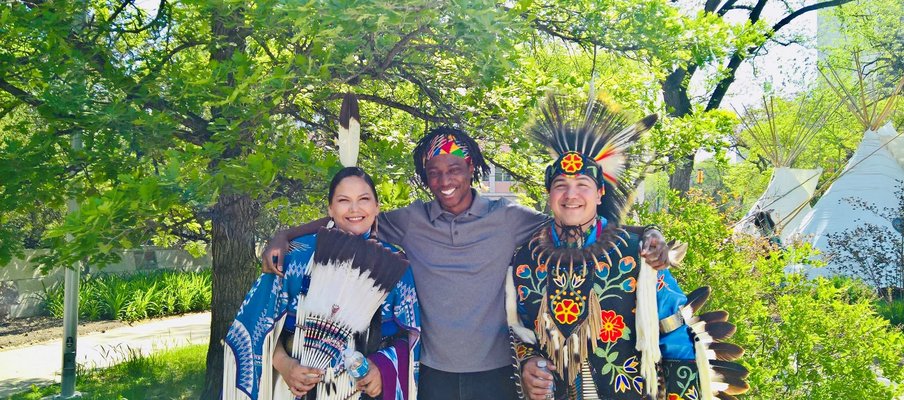How One Newcomer Youth is Championing Truth and Reconciliation Calls to Action

When Dany Muembo moved to Canada, he had one goal in mind ---to get educated and settle down. Today, he is one of ConnectR’s Youth Champions, leading conversations about Truth and Reconciliation Calls to Action using ConnectR’s online tools.
Launched in January 2019, ConnectR was set up to help people on their journey to understanding reconciliation. Last year, it launched a website hub offering lots of content and information about Truth and Reconciliation depending on visitors’ interests. People can search for a variety of topics and find answers to questions they may have about Indigenous peoples.
Christena Conrad, Program Manager, ConnectR, says the tool is for people who don’t know where to turn for information. “Often these people are scared or feel intimidated about reconciliation work. It is an easy route for people to go in and be confident that the information they are getting is accurate and has been reviewed and approved by survivors. They know they are not getting third person information.”
Muembo, 27, came to Canada six years ago as a refugee after fleeing crisis in the Democratic Republic of Congo. His interest and passion to support the Truth and Reconciliation Calls to Action began with a chance encounter during a cab ride. He had just arrived in Canada and the cab was taking him to a shelter when an Indigenous person crossed the road without watching out for oncoming vehicles. This, he says, prompted a remark from the cab driver who told Muembo his views about Indigenous people. He now knows these views were all wrong.
He says that encounter left him with negative impression of Indigenous people that stuck with him for many years until he met his first Indigenous friend. Muembo then became a frequent visitor to his friend’s community and learnt more about residential schools and the history of Indigenous peoples. “I can say for me that was a pivotal point in my life, regarding my relationship with Indigenous peoples. I started seeing that I am more similar to them than I was even aware.”
Through his interactions, Muembo learnt about ConnectR and says he was immediately drawn to the project because of the warmth and connectivity he felt from his Indigenous friends. He says the ConnectR’s Youth Champion Initiative employs Indigenous, non-Indigenous, and newcomer youths and empowers them to take action to further educate themselves and share their Reconciliation experiences on a more public platform. Muembo has been playing a huge role in ensuring its success.
“We have gone around to schools, high schools mostly, and we have talked about reconciliation and cleared the way for conversations that were difficult to have,” says Muembo. “I have learned that there is a long way to go for reconciliation in Canada and everybody has a role to play. It is high time that most people acknowledge it.”
Muenbo says his plan for the future is to continue the Truth and Reconciliation advocacy even beyond ConnectR. He has his eyes set on visiting reserves in northern Saskatchewan, to learn from Elders in the community. Then he will go on to share his knowledge with newcomers to Canada.
This project received funding from SaskCulture’s Multicultural Initiatives Fund.




